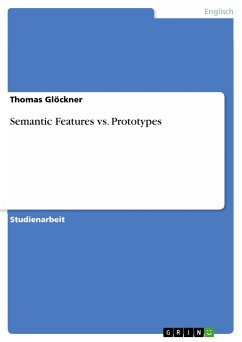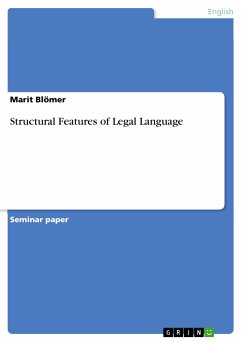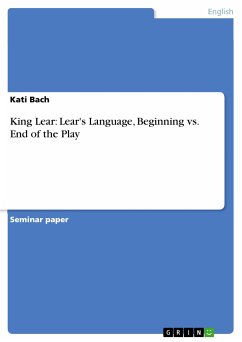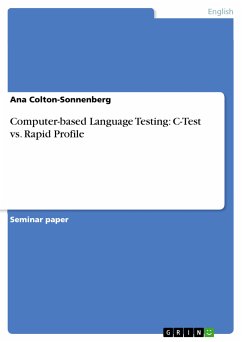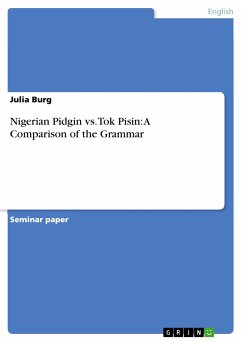Studienarbeit aus dem Jahr 1997 im Fachbereich Anglistik - Linguistik, Ludwig-Maximilians-Universität München (Institut für englische Philologie), Veranstaltung: Proseminar: Language and Psychology, Sprache: Deutsch, Abstract: 1Introduction According to Aristotle, every word is to be defined by naming its genus proximum and differentia specifica. The linguistic debate concerning the issue of word-meaning and its adequate description has split researchers into two opposing parties. Traditional linguists whose position is relatively close to Aristotle´s idea favour a theory called Feature Semantics (hereafter FS) whereas many scientists rather support a more modern approach which can be labelled Prototype Theory (hereafter PT). The aim of this research paper is to describe and compare these two concepts. As a conclusion of the first (theoretical) part, it will try to show that the two approaches are not incompatible but that they even seem to function on a complementary basis. In the second (more practical) part, I will try to decompose the meaning elements of some verbs of selected English semantic fields and thus give an example for the use (and usefulness) of semantic features. [...]
Bitte wählen Sie Ihr Anliegen aus.
Rechnungen
Retourenschein anfordern
Bestellstatus
Storno

